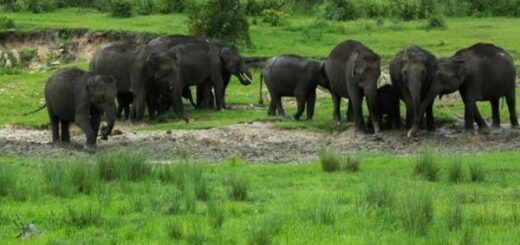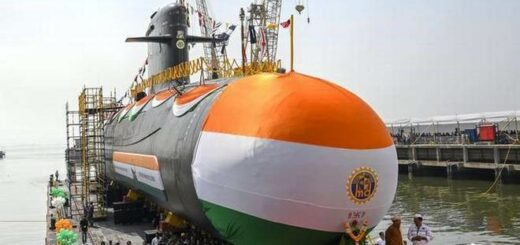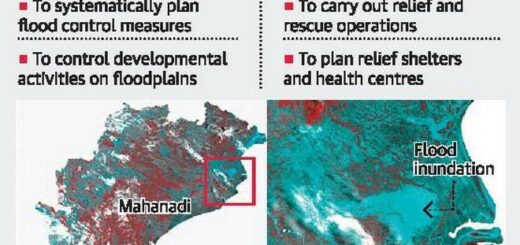National Current Affairs – UPSC/IAS Exams- 29th May 2019
by
Mentors4ias
·
May 29, 2019
Election Commission teams to appraise poll operations

- The Election Commission (EC) on 28th May constituted eight working groups to thoroughly appraise specific areas, based on its experience during the conduct of the Lok Sabha polls.
- Among the issues to be examined are timely action in cases of Model Code of Conduct (MCC) violations and the legal aspects of enforcement of the code.
- The groups, which have to submit their recommendations to the EC, would be headed by senior Deputy Election Commissioners, Deputy Election Commissioners and Director-Generals.
- There would also be a coordination committee headed by a Senior Deputy Election Commissioner and comprising all the senior officials till the rank of Director-General, besides eight nodal Chief Electoral Officers (CEOs).
- The EC is set to hold a meeting with CEOs of all the States and Union Territories in this regard on June 3.
Rolls, IDs
- One of the working groups on “electoral roll and polling stations” would study the health and fidelity of electoral rolls to make them error free.
- It would also look into issues pertaining to uniqueness and portability of Electoral Photo ID Card. Standardisation of addresses and rationalisation of polling stations would also be examined, apart from legal changes needed for improving electoral registrations.
- Another group on “election planning and management” would review matters related to simultaneous elections, scheduling of polls, deployment of armed forces, mapping of vulnerable pockets and law and order concerns.
- The issues pertaining to Electronic Voting Machines (EVM) and Voter Verifiable Paper Audit Trail (VVPAT) would be looked into by another team, in terms of inventory management and counting of paper slips.
- A group on “Model Code of Conduct, Manifestos, Observers and Political Parties” would explore various ways for standardisation of protocol for timely and effective action in MCC matters and their database management. It would also review its various provisions, including those involving manifestos.
- “Election expenditure monitoring” and related areas like fixing accountability of political parties and contribution reports involving star campaigners would be appraised by another group. Another group would suggest steps for encouraging higher voter turnout and awareness, besides dealing with the issues involving social media and paid news.
UGC to review quality of PhD theses over 10 years

Concern over lack of quality
- The University Grants Commission has launched a review of PhD theses in Indian universities — Central, State and private — over the last ten years, amid concerns that doctoral degrees are being granted to candidates whose theses lack originality and quality.
- The scope of study will involve the PhD theses in different disciplines in various Central universities, State universities, State private universities and deemed-to-be universities in the last 10 years
- While the study is to cover the whole country, findings may be given at the national as well as State-level.
Lack of guidance
- Many PhD scholars are not receiving sufficient guidance, orientation and training and partially blamed the lack of good teachers, given the slow pace of faculty recruitment in many major universities.
- Many PhD scholars don’t know what they’re doing.
- If they sit over 15-20 books and then write something, that is not what research is. Without original thinking and innovation, they will not make any dent
‘Draft QC orders will raise cost of medical devices’

- The Bureau of Indian Standards (BIS), through the Department of Pharmaceuticals, is in the process of finalising a quality-control mechanism for medical devices and has issued a draft Quality Control Orders (QCO) for six categories of devices, including blood glucose monitoring system, surgical blades and gloves, seeking stakeholder views.
- Though welcoming the move, the Medical Technology Association of India (MTAI), which represents research-based medical technology companies, has noted that the QCO “doesn’t fit in government’s broader plan to ensure patient safety or lower cost of healthcare.”
- In a statement, the group said the proposed QCO has a limited scope as it does not adequately address all aspects of quality, safety and performance and only covers the product safety standard of medical devices.
- Conforming to the order would mean increase in compliance cost for companies that are already adhering to essential checklist requirements of the Central Drugs Standard Control Organisation (CDSCO) and other global standards for domestic companies looking to export, since products must first conform with BIS standards, then qualify for global standards, etc. for eligibility for global markets.
- CDSCO has started the process to regulate all medical devices under the Drugs & Cosmetic Act as well as under the provisions of newly-introduced Medical Device Rules 2017, in a phased manner.
- Currently only 37 medical devices are regulated and CDSCO has proposed a regulatory road map which aims at bringing all categories of medical devices under regulation, over a span of 4-5 years.
Sri Lanka, Japan, India sign deal to develop East Container Terminal at Colombo Port
IAF Chief Birender Singh Dhanoa new chairman of Chiefs of Staff Committee

- Air Chief Marshal B S Dhanoa 29th May received the baton of Chairman of Chiefs of Staff Committee from outgoing Navy Chief Admiral Sunil Lanba who retires on 31st May.
- The Chiefs of Staff Committee comprises chiefs of the Army, the Navy and the Air Force and the senior most member is appointed its chairperson.
- Air Chief Marshal Birender Singh Dhanoa will be the Chairman COSC with effect from May 31 consequent to relinquishment of charge by Admiral Sunil Lanba upon superannuation
- The Chairman of Chiefs of Staff Committee is tasked with ensuring synergy among the three services and evolve common strategy to deal with external security challenges facing the country.
- Air Chief Marshal Dhanoa is a Kargil war veteran and top rated fighter pilot with over 3,000 hours of flying experience.
- An alumnus of Rashtriya Indian Military College and the National Defence Academy, he was commissioned in the flying branch of Indian Air Force in June 1978. The Air Chief Marshal has primarily flown the MiG-21 aircraft with flying experience across the entire spectrum of fighter aircraft of the IAF.
- During the Kargil war in 1999, he was the Commanding Officer of a frontline ground attack fighter squadron.
- He has led many coveted operational and staff assignments that include command of a frontline fighter base and director of the fighter operations and war planning at Western Air Command.
- He was the Air Officer Commanding-in-Chief of South Western Air Command and has also been the Vice Chief of the Air Staff.
India to appoint experts in Maldives to work on financial crime, money laundering
- India has decided to appoint experts in the Maldives to work on financial crime and money laundering matters.
- The officers, who would be deputed in the island nation for an initial period of one year, would prepare strategies to establish close coordination between agencies, both local and international, working on law enforcement, anti-corruption and anti-money laundering activities, they said, citing an official order.
- These officers would suggest methods to access operational support from Interpol, the London metropolitan police and the FBI among others.
- A panel of eligible officials is being finalised by the Centre to look into financial crime, fraud investigation, money laundering and preventing corruption.
- The experts will do informal analysis from internal and external data resources, social media and open source information and develop relevant new data sources
- They would also assist investigations on complex cases by conducting in-depth analysis and preparing link charts and other tools used in such investigations
- Prime Minister Narendra Modi is expected to travel to the Maldives early next month.
- Citing eligibility criteria for the posting, the order said the expert is expected to possess analytical expertise in identifying corruption, by screening and identifying information in emails, documents and photos related to sources and utilisation of funds within an organisation, embezzlement, money laundering, tax evasion and asset search.
- The expert should also be versed in anti-money laundering and counter financing or terrorism laws, United Nations Convention against Corruption (UNCAC), OECD Convention on Combating Bribery of Foreign Public Officials and inter-American Convention against corruption and similar organisations from the region.
- It is not for the first time that Indian officers are being appointed on deputation in foreign countries.
- India had earlier appointed officers in Mauritius and Singapore in order to intensify its effort in in checking money laundering and tax evasion























